I’ve read books in English, French, and Arabic. Both fiction and non-fiction.
Mostly, I’ll post here non-fiction English books. At least, the ones that I can recommend and might be relevant to most of you.
Also, I’ll skip the books that I read but don’t remember much of them. I spent a decade reading without taking notes. Please don’t do like me. It’s such a waste.
This section is only meant to spark your interest in books. So I’ll only write my impressions and three notes from the books. For more details, summaries and reviews, you can find them on Amazon or any other source.
For a faster research, you can click on any tag below to find the books of your interests.

Meditations
A New Translation by Gregory Hays
Marcus Aurelius
Meditations by Marcus Aurelius is about converting knowledge to action. The Roman Emperor keeps reminding himself of the same few truths, and thus, strengthens his soul against the challenges of everyday life to respond in the best manner possible. To learn more, check my wisdom article "Meditations: The Wise Emperor and His Inner Fortress".
Three notes from the book:
1- You could be good today. But instead, you choose tomorrow.
2- It never ceases to amaze me: we all love ourselves more than other people, but care more about their opinion than our own.
3- External things are not the problem. It’s your assessment of them.

The Value of Time
A collection of amazing sayings, anecdotes and wonderful stories of the scholars of the Muslim Ummah
Shaykh Abd al-Fattah Abu Ghuddah
Learning about the accomplishments of great Muslim scholars is inspiring. They could marry a rich spiritual life, hunger for knowledge, and action that benefit themselves and others beyond measure. This is everything a Muslim would want to aspire to. I wrote an article about this book that you can find in Articles-->Book Notes-->The Value of Time. This book is magical as it gives an immediate boost to ambition and determination.
Three notes from the book:
1- The Prophet (ﷺ) said: “There are two blessings that many people waste: health and free time.” [Bukhari]
2- Imam al-Shafii said: “Keep your soul occupied with good, otherwise it will keep you occupied with evil.”
3- Imam al-Halabi wrote in the biography of al-Suyuti in Bughyat al-Wuat:
To do a thing today, and the same tomorrow.
Gathering is the essence of knowledge.
Thus one may achieve wisdom.
For streams are but the gathering of drops.
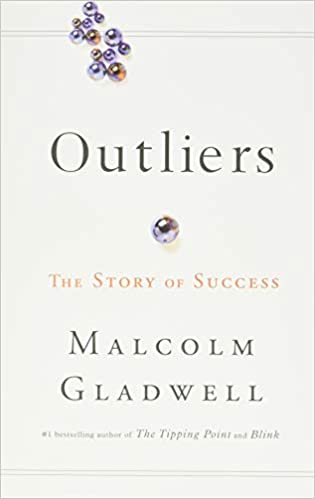
Outliers
The Story of Success
Malcolm Gladwell
I read The Tipping Point after reading Outliers. From a writing perspective, Outliers is far better. It is fluid with a dose of suspense. You don't see from the beginning how the different chapters are connected to the main idea, which keeps you captivated. For the rest, based on the story of many successful people, Gladwell shows what it takes to be successful. Also, you'll understand why some ingredients of success are not replicable.
Three notes from the book:
1- Achievement is talent plus preparation. The problem with this view is that the closer psychologists look at the careers of the gifted, the smaller the role innate talent seems to play and the bigger the role preparation seems to play.
2- Those three things - autonomy, complexity, and a connection between effort and reward - are, most people will agree, the three qualities that work has to have if it is to be satisfying.
3- It is those who are successful, in other words, who are most likely to be given the kinds of special opportunities that lead to further success. It’s the rich who get the biggest tax breaks. It’s the best students who get the best teaching and most attention. And it’s the biggest nine- and ten-year-olds who get the most coaching and practice. Success is the result of what sociologists like to call “accumulative advantage.
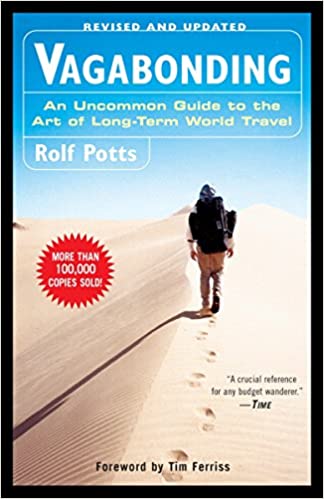
Vagabonding
An Uncommon Guide to the Art of Long-Term World Travel
Rolf Potts
Once my mum asked me: what do you want to do in life? I replied instantly: vagabonding. Traveling is one of my biggest joys in life. I like to travel without rush, to get lost, to discover new things about the world and myself, and to come back home slightly different than before traveling. You'll find in this book plenty of resources for new and experimented travelers but also, a different way to look at life.
Three notes from the book:
1- The more we associate experience with cash value, the more we think that money is what we need to live. And the more we associate money with life, the more we convince ourselves that we’re too poor to buy our freedom.
2- Vagabonding is about gaining the courage to loosen your grip on the so-called certainties of this world. Vagabonding is about refusing to exile travel to some other, seemingly more appropriate, time of your life. Vagabonding is about taking control of your circumstances instead of passively waiting for them to decide your fate.
3- A vacation, after all, merely rewards work. Vagabonding justifies it.
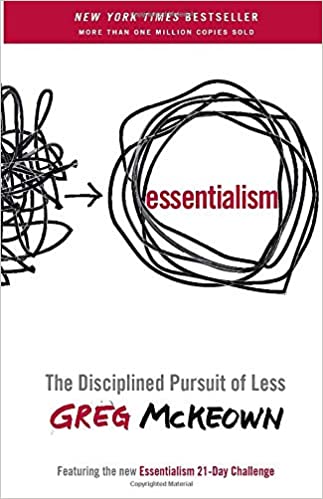
Essentialism
The Disciplined Pursuit of Less
Greg McKeown
If you are the kind of person who has 10 priorities per day, then you need to read Essentialism. This book is not about getting more things done. It's about doing the few and essential things in a better way.
Three notes from the book:
1- If you don't prioritize your life, someone else will.
2- Have you ever felt the stress that comes from simultaneously holding two contradictory beliefs: "I can't do this" and "I have to do this"?
3- For a type-A personality, it is not hard to push oneself hard. Pushing oneself to the limit is easy! The real challenge for a person who thrives on challenges is not to work hard.
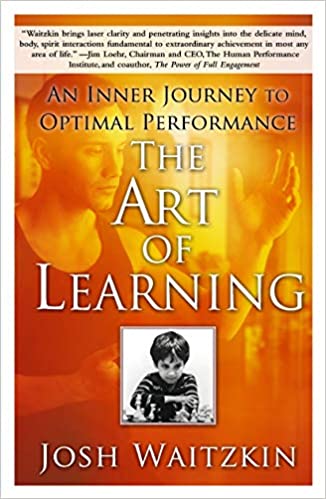
The Art of Learning
An Inner Journey to Optimal Performance
Josh Waitzkin
If you saw the movie 'Searching for Bobby Fischer', you know already who Josh Waitzkin is. What's fascinating about him is his performance not only in chess but also in martial arts. This book exposes his methods for reaching high levels of achievement in unrelated fields.
Three notes from the book:
1- If your goal is to be mediocre, then you have a considerable margin for error.
2- A child with a learning theory of intelligence tends to sense that with hard work, difficult material can be grasped--step by step, incrementally, the novice can become the master.
3- I believe an appreciation for simplicity, the everyday--the ability to dive deeply into the banal and discover life's hidden richness--is where success, let alone happiness, emerges.
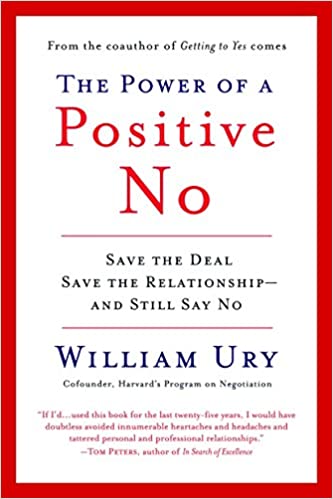
The Power of a Positive No
Save The Deal Save The Relationship and Still Say No
William Ury
Various reasons make saying No difficult for many people. I bought this book to help my colleague say No to an abusive situation. To be honest, I didn't expect that much. Do we need an entire book just to say No? But I was wrong.
Three notes from the book:
1- We all too often start by accommodating the other. Then naturally, we begin to feel resentful. After suppressing our feeling for a while, there comes the point when we suddenly explode, only to feel guilty afterward at the destructive impact of our attack. So we lapse back into accommodation or avoidance, ignoring the problem and hoping it will disappear.
2- If you can learn how to say No skillfully and wisely, you can create what you want, protect what you value, and change what doesn't work.
3- Perhaps the single biggest mistake we make when we say No is to start from No.
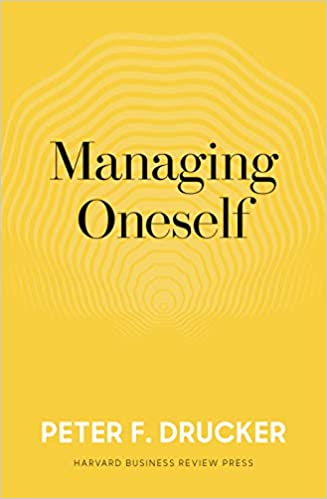
Managing Oneself
The Key to Success
Peter F. Drucker
Peter Drucker is considered the father of modern management. In this little gem, he's answering few questions to help us develop ourselves and manage our working life effectively.
Three notes from the book:
1- Most people think they know what they are good at. They are usually wrong. More often, people know what they are not good at--and even then more people are wrong than right.
2- The only way to discover your strengths is through feedback analysis. Whenever you make a decision or take an action, write down what you expect will happen. Nine or 12 months later, compare the actual results with your expectations.
3- Successful careers are not planned. They develop when people are prepared for opportunities because they know their strengths, their method of work, and their values.
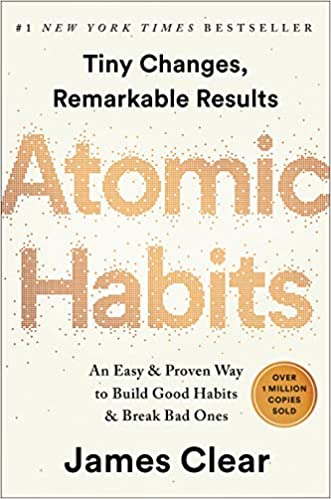
Atomic Habits
An Easy & Proven Way to Build Good Habits & Break Bad Ones
James Clear
Learning about habits improved my life dramatically. Once you understand how habits work, you can break down any long-term goal into tiny daily habits. Whatever you want to achieve, it becomes easier by understanding the psychology behind habits.
Three notes from the book:
1- Habits are the compound interest of self-improvement. The same way that money multiplies through compound interest, the effects of your habits multiply as you repeat them.
2- The purpose of setting goals is to win the game. The purpose of building systems is to continue playing the game.
3- The most practical way to change who you are is to change what you do.

Mindset
The New Psychology of Success
Carol S. Dweck
You've probably already heard about the two mindsets: the fixed and the growth mindsets. The strength of this book lies in showing how these two mindsets affect every aspect of our life, from our perceptions to our accomplishments, passing by our relationships, and much more.
Three notes from the book:
1- Failure has been transformed from an action (I failed) to an identity (I'm a failure). This is especially true in the fixed mindset.
2- This growth mindset is based on the belief that your basic qualities are things you can cultivate through efforts, your strategies, and help from others.
3- ...many managers don't believe in personal change. These fixed-mindset managers simply look for the existing talent--they judge employees as competent or incompetent at the start and that's that.










